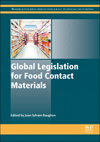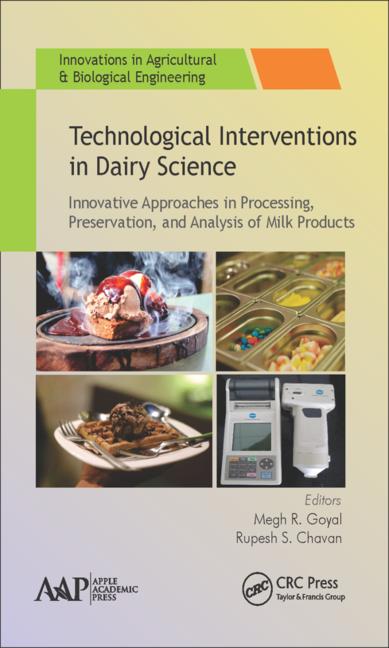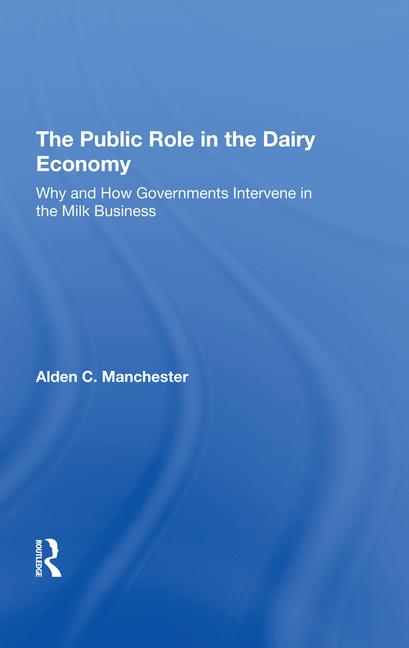Global Insights: Message in a Milk Bottle
If global dairy demand has been irreparably damaged since the markets turned last summer, someone forgot to tell Keith Turner.
Turner is chairman of New Zealand Milk Co., a startup that plans to invest $57 million to build a milk powder plant on the nation’s South Island.
“You’ve got to be bold,” said Turner, the former CEO of Meridian Energy, recently named one of New Zealand’s 15 most powerful people. “This is the time in my view to be investing, and certainly from the interest of the farmers, they don’t think it’s a bad time either.”
Apparently word of market malaise hasn’t trickled down to Georges Schorderet either. The chief financial officer of Saudi Arabia-based Almarai Co., the Middle East’s largest dairy, told the Financial Times: “I still believe there is substantial growth in our existing market in the next two to three years. But if we want to secure long-term growth we need to expand outside the GCC into new categories.” To make that happen, the company is spending $173 million over the next 18 months to move into infant formula production.
Nor has anyone clued in Asahi Breweries, which is spending $61 million to raise infant formula processing capacity at its Wakado Co. subsidiary; or Thailand’s Friesland Foods Foremost, which is spending $28 million on new UHT milk lines; or Brazil’s Bom Gosto, which is building a new $30 million milk plant in Uruguay.
Execs at Yum Brands must not have received the memo either. In the first quarter, the global operator of Pizza Hut, KFC and Taco Bell opened 256 units outside the United States, including 98 in China. It says it will open another 1,500 restaurants in China over the next three years – a pace of nearly 10 a week. In addition, Yum just bought a 20% stake in Little Sheep, one of China’s largest restaurant chains, for $64 million.
“They’re going for the emerging market growth, and they’re going at it in a big way,” Larry Miller, a restaurant analyst with RBC Capital Markets, told the Associated Press. “They still have a lot of faith in the pre-global meltdown economy; that things are going to look the same when we come out of it.”
Likewise, Brinker International and McDonald’s still have big appetites for overseas growth. Brinker plans to add 300 overseas units over the next five years, targeting China, Russia, Brazil and emerging markets such as Colombia, Chile, Argentina and South Africa. McDonald’s intends to open 140 units in China this year, citing lower costs of opening new outlets. It also announced plans to recruit 10,000 new employees in China in 2009 to facilitate its expansion efforts.
With consumer spending down, surely Wal-Mart, the world’s largest retailer, is retrenching? Well, actually, no. Wal-Mart de Mexico will spend nearly $800 million this year to open 252 new units throughout the country.
So while global dairy markets remain mired in a cyclical slump, exacerbated by the global recession, many of the world’s multinational players are undaunted. Plain and simple, they believe it’s a good time to invest because they understand that once the economic situation improves, consumers will again drive demand for dairy.
U.S. dairy suppliers, to their credit, are not pulling back from the international market either. Export volumes may be lower this year, but most companies tell us they remain engaged with their overseas customers, positioning themselves for a market recovery.
The overarching sentiment is this: Global dairy markets are cyclical and export success requires a long-term approach.
U.S. industry leaders received that memorandum personally when one of the world’s largest dairy buyers addressed attendees of the U.S. Dairy Export Council’s late-April board meeting.
“Our viewpoint is that today’s economic crisis is a blip in the long-term demand trend,” this key buyer said. “We’re in a world market trough, but looking ahead we believe global demand will improve. When it does, we’ll need U.S. dairy exports that are fit for the purpose, continuously present and consumer focused.”
That’s a message the U.S. dairy industry needed to hear, loud and clear. n
Tom Suber is president of the U.S. Dairy Export Council.
Turner is chairman of New Zealand Milk Co., a startup that plans to invest $57 million to build a milk powder plant on the nation’s South Island.
“You’ve got to be bold,” said Turner, the former CEO of Meridian Energy, recently named one of New Zealand’s 15 most powerful people. “This is the time in my view to be investing, and certainly from the interest of the farmers, they don’t think it’s a bad time either.”
Apparently word of market malaise hasn’t trickled down to Georges Schorderet either. The chief financial officer of Saudi Arabia-based Almarai Co., the Middle East’s largest dairy, told the Financial Times: “I still believe there is substantial growth in our existing market in the next two to three years. But if we want to secure long-term growth we need to expand outside the GCC into new categories.” To make that happen, the company is spending $173 million over the next 18 months to move into infant formula production.
Nor has anyone clued in Asahi Breweries, which is spending $61 million to raise infant formula processing capacity at its Wakado Co. subsidiary; or Thailand’s Friesland Foods Foremost, which is spending $28 million on new UHT milk lines; or Brazil’s Bom Gosto, which is building a new $30 million milk plant in Uruguay.
Execs at Yum Brands must not have received the memo either. In the first quarter, the global operator of Pizza Hut, KFC and Taco Bell opened 256 units outside the United States, including 98 in China. It says it will open another 1,500 restaurants in China over the next three years – a pace of nearly 10 a week. In addition, Yum just bought a 20% stake in Little Sheep, one of China’s largest restaurant chains, for $64 million.
“They’re going for the emerging market growth, and they’re going at it in a big way,” Larry Miller, a restaurant analyst with RBC Capital Markets, told the Associated Press. “They still have a lot of faith in the pre-global meltdown economy; that things are going to look the same when we come out of it.”
Likewise, Brinker International and McDonald’s still have big appetites for overseas growth. Brinker plans to add 300 overseas units over the next five years, targeting China, Russia, Brazil and emerging markets such as Colombia, Chile, Argentina and South Africa. McDonald’s intends to open 140 units in China this year, citing lower costs of opening new outlets. It also announced plans to recruit 10,000 new employees in China in 2009 to facilitate its expansion efforts.
With consumer spending down, surely Wal-Mart, the world’s largest retailer, is retrenching? Well, actually, no. Wal-Mart de Mexico will spend nearly $800 million this year to open 252 new units throughout the country.
So while global dairy markets remain mired in a cyclical slump, exacerbated by the global recession, many of the world’s multinational players are undaunted. Plain and simple, they believe it’s a good time to invest because they understand that once the economic situation improves, consumers will again drive demand for dairy.
U.S. dairy suppliers, to their credit, are not pulling back from the international market either. Export volumes may be lower this year, but most companies tell us they remain engaged with their overseas customers, positioning themselves for a market recovery.
The overarching sentiment is this: Global dairy markets are cyclical and export success requires a long-term approach.
U.S. industry leaders received that memorandum personally when one of the world’s largest dairy buyers addressed attendees of the U.S. Dairy Export Council’s late-April board meeting.
“Our viewpoint is that today’s economic crisis is a blip in the long-term demand trend,” this key buyer said. “We’re in a world market trough, but looking ahead we believe global demand will improve. When it does, we’ll need U.S. dairy exports that are fit for the purpose, continuously present and consumer focused.”
That’s a message the U.S. dairy industry needed to hear, loud and clear. n
Tom Suber is president of the U.S. Dairy Export Council.
Looking for a reprint of this article?
From high-res PDFs to custom plaques, order your copy today!







